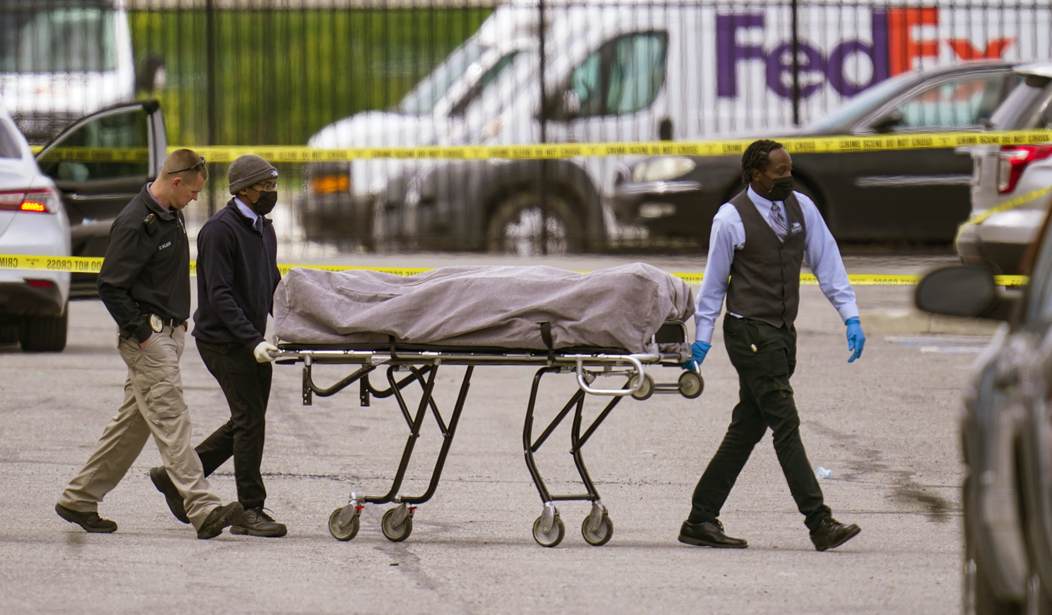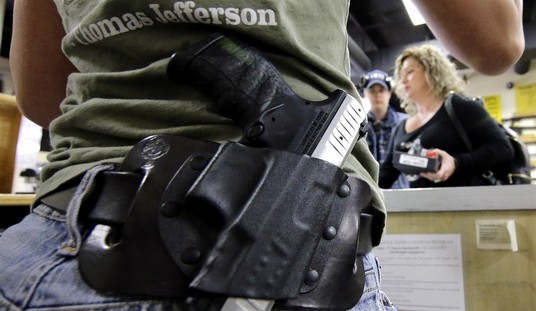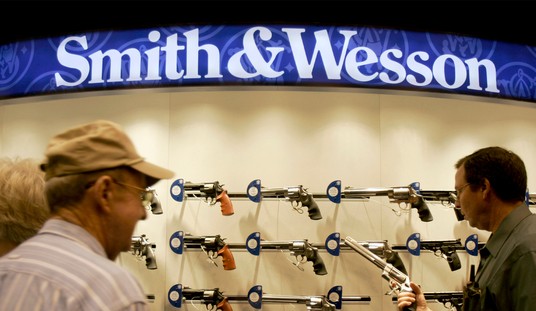We now know that, despite law enforcement seizing a shotgun that belonged to the killer in the Indianapolis FedEx shooting last week, the suspect was still able to legally purchase two rifles months later. Is this a sign that more gun control laws are needed, or a sign that the promises of increased safety made by gun control advocates are just empty words?
Gun control advocates will obviously claim that the shootings would never have happened if only we had more “commonsense gun safety regulations” on the books, but in truth it’s becoming increasingly clear that there were chances to stop the killer before he ever took a single life using the laws that are already on the books.
In March 2020, the police seized a shotgun from [name redacted] after his mother raised concerns about his mental state, records show. But, Chief Randal Taylor said, the fact that [the suspect] was legally able to make the more recent gun purchases indicated that — despite his mother’s warning and the police seizure of a gun — the authorities had not deemed him subject to Indiana’s so-called red flag law, which bars people from possessing a firearm if they are found by a judge to present a dangerous risk.
Indiana has one of the oldest red flag firearm seizure laws in the country, but it was apparently never used against the suspect, even after police seized his shotgun in March of last year.
Online court records show no indication [the suspect] appeared before a court to prove his competency, and police say it’s unclear of the shotgun seized in March 2020 and never returned was confiscated under proper red flag procedure.
If [the suspect] fought the seizure and won, he would have had his shotgun returned. If he was unsuccessful, he would have never been able to make his additional purchases.
IndyStar has reached to the Indianapolis Metropolitan Police Department and the Marion County Prosecutor’s Office to learn more about the nature of the original seizure, and if red flag hearings were held in connection to the incident.
Officials from the prosecutor’s office told IndyStar Sunday they are looking into the specifics of the matter and hope to provide comment as early as Monday afternoon.
According to FBI Indianapolis Special Agent in Charge Paul Keenan, [the killer] was placed on an immediate detention mental health temporary hold by IMPD after his mother contacted them in March 2020.
“Based on items observed in the suspect’s bedroom at that time, he was interviewed by the FBI in April 2020,” Keenan said in a statement. “No Racially Motivated Violent Extremism (RMVE) ideology was identified during the course of the assessment and no criminal violation was found. The shotgun was not returned to the suspect.”
I’m not a fan of red flag laws for several reasons, including the lack of due process afforded to those subject to a red flag order. Even beyond those issues, however, the Extreme Risk Protection Orders can often be used as an easy out on the part of politicians who would rather slap another gun control law on the books instead of addressing the much more difficult issue of funding and improving mental health systems. Like most states, Indiana has a shortage of inpatient beds for those in a mental health crisis, and when the suspect was taken in on a temporary mental health hold in March of last year, there was also a push to clear out space in hospitals, jails, and other facilities to try to prevent the COVID pandemic from spreading in institutional settings.
Was that why the suspect was released after his temporary hold expired? We don’t know for sure but I wouldn’t be shocked if that was a factor. Had the suspect been deemed a danger to himself or others and been involuntarily committed, the state’s red flag law wouldn’t have come into play at all. The suspect would have been barred from purchasing any guns thereafter, but it appears that neither the red flag law on the books or Indiana’s civil commitment laws were ever fully utilized when the suspect’s mother reported him to police last year.
More gun control laws wouldn’t have made a difference here, but a fully functioning mental health system likely would have addressed the problem long before the suspect took a single life. If Dr. Anthony Fauci and other “experts” believe that violence is a public health epidemic, then they should be demanding repairs to our broken mental health system instead of calling for more gun control laws aimed at reducing legal gun ownership for the rest of us.









Join the conversation as a VIP Member